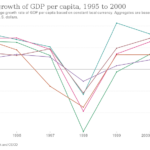As violence against foreigners escalates, calls for compassion are silenced.
- China’s Communist Party has intensified patriotic education, leading to a rise in nationalist fervor.
- Recent stabbing attacks on Japanese and American individuals have highlighted the dangers of ‘hate education.’
- Public expressions of compassion are often suppressed by Chinese authorities.
- Textbooks in China emphasize historical grievances against Japan and the U.S.
- Anti-Japan sentiment has surged following Japan’s release of Fukushima water, leading to violent incidents.
- Chinese social media platforms struggle to manage the spread of extreme nationalist content.
In recent years, China’s Communist Party has ramped up its patriotic rhetoric in schools and media, fostering a wave of nationalism that has taken a troubling turn. This shift has been starkly illustrated by a series of violent incidents targeting Japanese and American individuals, which many are now labeling as ‘hate education.’ A notable example includes a viral video of a teacher passionately instructing students about China’s historical grievances with Japan, which was widely praised in state media. nnThe atmosphere of hostility has been further fueled by recent events, including the tragic stabbing of a 10-year-old Japanese boy in Shenzhen, coinciding with the anniversary of Japan’s invasion of Manchuria. In response, two law professors attempted to promote a message of compassion, warning against violence in the name of patriotism, but their commentary was swiftly removed from social media. nnChinese officials maintain that the education system does not promote hatred, yet textbooks continue to highlight Japan’s wartime atrocities and frame the U.S. as an ideological adversary. This narrative has been reinforced under President Xi Jinping, who emphasizes vigilance against Western influences. nnThe rise in anti-Japan sentiment has been exacerbated by Japan’s controversial release of treated water from the Fukushima nuclear plant, which has drawn ire from Chinese authorities. This has led to public displays of anti-Japanese sentiment, including a school play that reenacted the assassination of former Prime Minister Shinzo Abe. nnThe recent spate of violence includes a June attack on a Japanese woman and her child, and a separate incident involving American college instructors. Despite these attacks, Chinese authorities have downplayed their significance, labeling them as isolated incidents. nnIn the aftermath of the boy’s death, a heartfelt letter from his father circulated online, promoting a message of forgiveness that quickly vanished from Chinese social media, likely due to regulatory intervention. Activists have since launched a memorial campaign, urging people to reject hate crimes and promote understanding through art. nnAs nationalist sentiment continues to rise, the challenge remains for China to balance its historical grievances with the need for global cooperation and compassion.·
Factuality Level: 6
Factuality Justification: The article presents a detailed account of the rise of nationalism and anti-Japanese sentiment in China, supported by specific examples and quotes from various sources. However, it contains some bias and opinion, particularly in its framing of the Communist Party’s actions and the portrayal of nationalism, which may affect its objectivity. Additionally, while it provides a comprehensive overview, some sections may be seen as repetitive or overly dramatic, impacting the overall factuality.·
Noise Level: 8
Noise Justification: The article provides a detailed analysis of the rise of nationalism and hate education in China, supported by specific examples and expert opinions. It holds powerful entities accountable by discussing the role of the Communist Party in promoting these sentiments and the consequences of such actions. The article stays on topic, avoids irrelevant information, and offers insights into the implications for foreign relations. However, it could benefit from more actionable solutions or insights for readers.·
Key People: Wang Ke (Retired Kobe University professor), Chen Bi (Beijing law professor), Zhao Hong (Beijing law professor), Lin Jian (Chinese Foreign Ministry spokesman), Gu Yan Mu Chan (Official ‘propaganda ambassador’ of Guangdong province)
Financial Relevance: No
Financial Markets Impacted: No
Financial Rating Justification: The article discusses nationalist sentiments and incidents of violence in China, particularly against Japanese and American individuals, but it does not address financial topics or events that would impact financial markets or companies.·
Presence Of Extreme Event: Yes
Nature Of Extreme Event: Major Accident
Impact Rating Of The Extreme Event: Major
Extreme Rating Justification: The article discusses multiple stabbing attacks targeting Japanese and Americans in China, with the most recent being the fatal stabbing of a 10-year-old Japanese boy. This incident has significant implications for public safety and international relations, indicating a major impact.·
Move Size: No market move size mentioned.
Sector: All
Direction: Down
Magnitude: Large
Affected Instruments: Stocks
 www.wsj.com
www.wsj.com 





